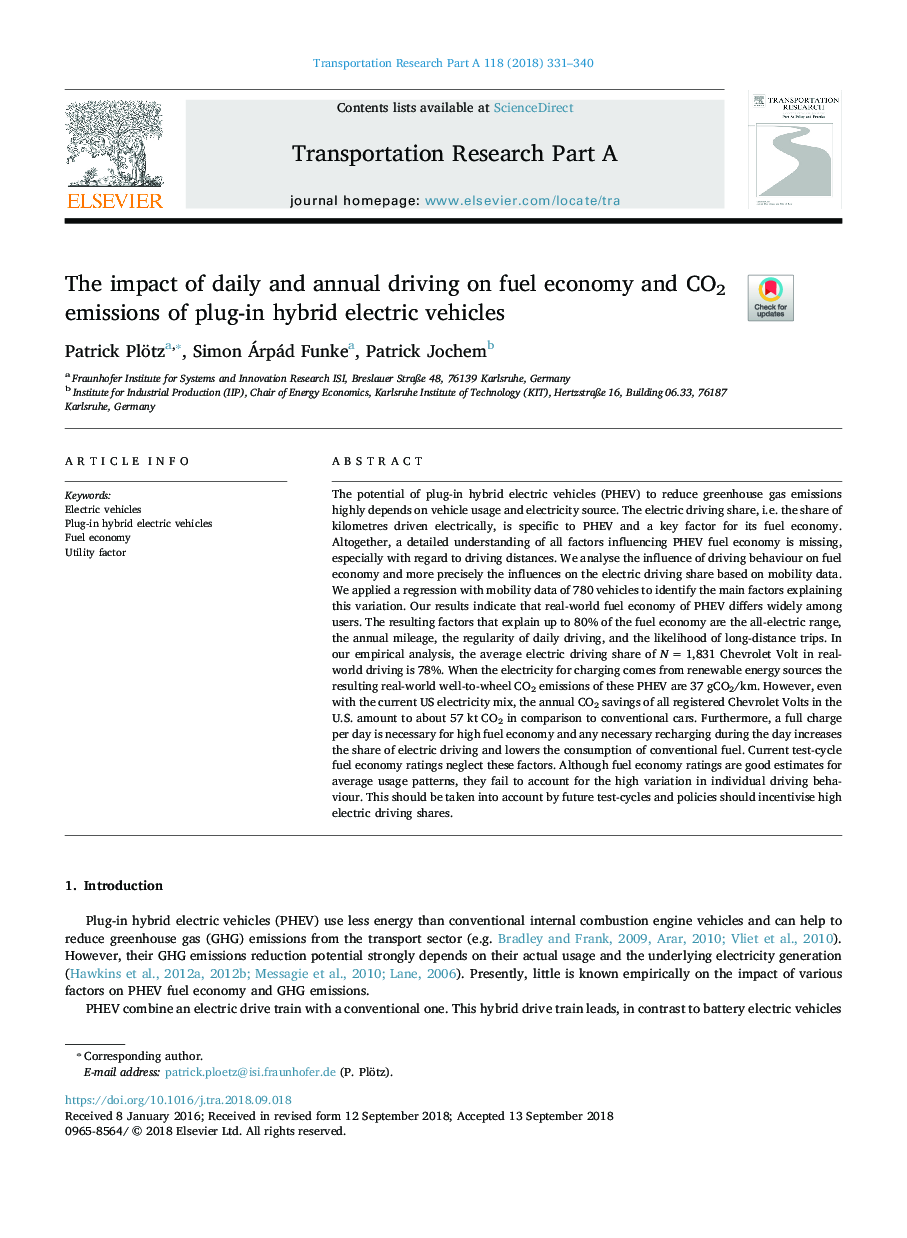| کد مقاله | کد نشریه | سال انتشار | مقاله انگلیسی | نسخه تمام متن |
|---|---|---|---|---|
| 11030169 | 1646370 | 2018 | 10 صفحه PDF | دانلود رایگان |
عنوان انگلیسی مقاله ISI
The impact of daily and annual driving on fuel economy and CO2 emissions of plug-in hybrid electric vehicles
دانلود مقاله + سفارش ترجمه
دانلود مقاله ISI انگلیسی
رایگان برای ایرانیان
کلمات کلیدی
موضوعات مرتبط
مهندسی و علوم پایه
سایر رشته های مهندسی
مهندسی عمران و سازه
پیش نمایش صفحه اول مقاله

چکیده انگلیسی
The potential of plug-in hybrid electric vehicles (PHEV) to reduce greenhouse gas emissions highly depends on vehicle usage and electricity source. The electric driving share, i.e. the share of kilometres driven electrically, is specific to PHEV and a key factor for its fuel economy. Altogether, a detailed understanding of all factors influencing PHEV fuel economy is missing, especially with regard to driving distances. We analyse the influence of driving behaviour on fuel economy and more precisely the influences on the electric driving share based on mobility data. We applied a regression with mobility data of 780 vehicles to identify the main factors explaining this variation. Our results indicate that real-world fuel economy of PHEV differs widely among users. The resulting factors that explain up to 80% of the fuel economy are the all-electric range, the annual mileage, the regularity of daily driving, and the likelihood of long-distance trips. In our empirical analysis, the average electric driving share of Nâ¯=â¯1,831 Chevrolet Volt in real-world driving is 78%. When the electricity for charging comes from renewable energy sources the resulting real-world well-to-wheel CO2 emissions of these PHEV are 37 gCO2/km. However, even with the current US electricity mix, the annual CO2 savings of all registered Chevrolet Volts in the U.S. amount to about 57 kt CO2 in comparison to conventional cars. Furthermore, a full charge per day is necessary for high fuel economy and any necessary recharging during the day increases the share of electric driving and lowers the consumption of conventional fuel. Current test-cycle fuel economy ratings neglect these factors. Although fuel economy ratings are good estimates for average usage patterns, they fail to account for the high variation in individual driving behaviour. This should be taken into account by future test-cycles and policies should incentivise high electric driving shares.
ناشر
Database: Elsevier - ScienceDirect (ساینس دایرکت)
Journal: Transportation Research Part A: Policy and Practice - Volume 118, December 2018, Pages 331-340
Journal: Transportation Research Part A: Policy and Practice - Volume 118, December 2018, Pages 331-340
نویسندگان
Patrick Plötz, Simon Árpád Funke, Patrick Jochem,